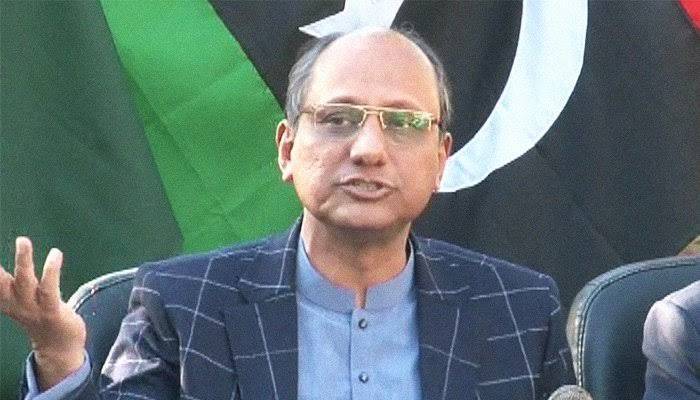Sindh Education Minister Saeed Ghani announced on Friday that a biometric attendance system would be introduced in schools to record student participation and that biometric participation would become mandatory for students at a later date.
At a meeting to mark the 30th anniversary of All Pakistan Private School Management (APSMA), Ghani also explained the government’s recruitment and transfer policies and assured that no one, including himself, would interfere with the appointment of teachers.
Karachi; Minister Education Labour Sindh @SaeedGhani1 addressing an important press conference https://t.co/pajO6q4ch2
— Minister Education & Labour Sindh (@MinisterSindh) February 28, 2021
You May Also Like: HED Punjab E-transfer system launched by PITB and HED
Biometric system Ghani said a biometric system for visiting school children has already been put in place and steps are being taken to label visiting school children using the same technology.
The minister said the government is working to make biometric students compulsory to attend schools.
Teachers Recruitment and transfer policy
The provincial education minister recognized the lack of education and non-teachers in the schools and attributed this to the then Education Minister’s ban on hiring teachers in 2018 and a later restriction introduced by the cabinet in 2019.
اب کسی بھی استاد کو اپنے تبادلہ کے لیے لکھ کر درخواست دینے کی ضرورت نہیں بلکہ اب وہ خود اپنے موبائل یا کمپیوٹر سے تبادلے کی آن لائن درخواست دے سکتے ہیں۔ سعید غنی وزیر تعلیم و محنت سندھ @SaeedGhani1 pic.twitter.com/nTtljGE71k
— Minister Education & Labour Sindh (@MinisterSindh) March 1, 2021
He argued that the restrictions were enforced because teachers refused to post in areas where they were needed and instead chose vacancies in the places they chose.
He then turned to the new teacher recruitment and transfer policy, assuring that appointments are made on merit only and that only candidates who pass the test organized by the Sukkur Institute of Business Studies will be hired.
He explained that the exams for vacancies are organized at the level of the specialist council and that the teachers are appointed accordingly.
اساتذہ کی بھرتی یوسی کی سطح پر ہونگی،اسکا مقصد یہ ہے کہ جس یوسی کے اسکولز میں اساتذہ کی کمی ہے وہاں کے مقامی لوگوں سے اس کمی کو پورا کیا جاسکے۔ سعید غنی وزیر تعلیم و محنت سندھ @SaeedGhani1 pic.twitter.com/K8hBg8JZwD
— Minister Education & Labour Sindh (@MinisterSindh) March 1, 2021
Ghani said that under the revamped recruitment and transfer policy, schools are divided into three categories, namely red, yellow and green. Ghani added that teachers in the red category could not be transferred to the school because of students teachers ratio.
The students teachers ratio, is a ratio developed by Sindh government between the students and teachers as per the ratio one teacher will be deployed for the thirty students.
However, teachers working in schools in this category may request a transfer to another place, provided that there is a vacancy in the selection of institutions for posting applicants.
Teacher training In terms of teacher education, Ghani said the government plans to run five of its 20 teacher educators under the public-private partnership model.
He added that access to these facilities was profitable and the tuition fees would be paid as a loan from Sindh’s government for the four-year program.
The provincial minister also announced that teachers trained at the above institutions will be promoted to government positions immediately upon completion of their training and that the cost of their fees will be deducted from their pay as a result of the repayment of the interest-free loan.
According to Ghani, 49,000 schools have already been set up in Sindh, far beyond his needs.
“About 50 to 60 schools were set up in areas where only one school was needed,” he said, adding that some areas did not have primary and secondary schools prohibiting children from continuing their studies after primary school.
He said the government has now formed 6,000 school clusters, with each cluster consisting of schools within two kilometers and at least one primary and one secondary school.
Ghani said all schools in the province were on Google Maps with GPS and data for each school was available online, including information about the state of the school and the number of students and teachers.
“I now urge all private school organizations to work towards the list of all unregistered private institutions so that complete data on children in schools can be collected,” he added.
With this data, steps can be taken to improve the education sector, he said. In addition, the government has donated money to students from 47 colleges and universities, and in this context wants to finance students in schools where steps are being taken.
The minister called on teachers, students and parents to do their bit and work with the government on “revolutionary” improvements in the education sector.


